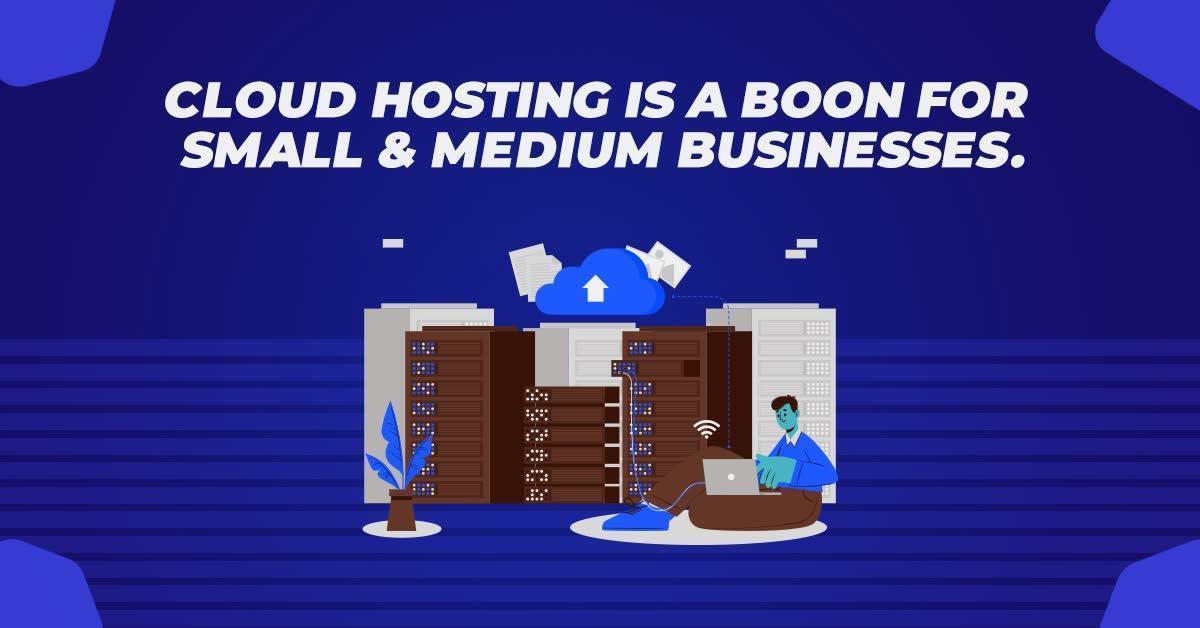Cloud Computing – Everything You Need To Know
International Data Group data indicates that 69% of firms currently employ cloud computing, and 18% have future plans to do so. Still, some business executives are cautious to use cloud computing. If you’re one of them, now is the ideal time to join the cloud computing bandwagon. Otherwise, you’ll pass up a lot of chances.
Cloud Computing – What Is It?
Cloud computing is simply the process of storing data and using computing services through the internet. Several instances of cloud computing are given below:
- Messaging services like Slack and Microsoft Teams.
- Apps for video conferences like Zoom and GMeet.
- Mail-sending services like Outlook and Gmail.
- Platforms for storing files, such as Google Drive and Dropbox.
You can use a variety of cloud computing services from each cloud service provider on a pay-as-you-go basis, such as Google Cloud Platform from Google and AWS from Amazon. All the environments and tools required for successful cloud operations are included in these suites.
What Cloud Computing Has to Offer?
The attributes of cloud computing are as follows:
- Multiple clients can share resources with the cloud provider, and each resource can deliver services in accordance with each client’s particular business requirements.
- The cloud infrastructure must be bought, hosted, and maintained by the cloud hosting company. It relieves you of a lot of upkeep and financial anxiety.
- Users of cloud services only have to pay for the services they really utilize. In comparison to the conventional computer approach, they can thus save a lot of money.
- Large-scale services can be provided by suppliers of cloud computing services. You can even scale up or down your servers based on your business needs.
- Cloud servers are dependable and secure. There are either none or very few downtimes.
- For billing purposes and efficient resource management, cloud service providers allow you to monitor and quantify service usage.
Strong Advantages of Cloud Computing
Most firms are switching to cloud computing due to its numerous advantages. These are a few of the advantages:
1. Outstanding Return on Investment (ROI)
Do you worry about the upfront costs associated with establishing a cloud-based server? You shouldn’t because the investment’s return outweighs any drawbacks. Using the cloud gives high ROI in the following ways:
- A lot of time, money, and effort is saved by having simple access to data in the cloud.
- You only pay for the services you use thanks to cloud computing’s pay-as-you-go pricing model.
- On the cloud, communication and collaboration are much simpler.
All of these elements working together can minimize expenses and increase results.
2. Enhanced Security
Network and data breaches are less likely with traditional internal computing. However, it also increases the likelihood of human error. Additionally, because the data is kept in a single location, it may be permanently lost in the event of a natural disaster or identity theft. In cloud computing, the data is dispersed among numerous servers in various places. It goes through rigorous updates and is shielded by a number of security measures. Additionally, to avoid problems, cloud computing services offer round-the-clock monitoring.
Additionally, all data backups are centralized in the data centers of cloud providers. Consequently, you don’t need to keep a separate backup. To protect consumers’ sensitive data, several cloud service providers offer extra security measures including data encryption and two-factor authentication.
3. Reduced Downtime
For a company’s servers to function effectively, updates and maintenance must be performed often. Being accessible at all times is however impractical in traditional computers since workers require time off on holidays, sick days, or other reasons. Teams working with cloud computing have resources available all the time. Additionally, the data is maintained by numerous systems. As a result, there is virtually no danger of downtime.
4. Improved Speed and Bandwidth
The local servers handle data more quickly. However, these servers will crash the instant you use more storage or bandwidth than necessary to do the work. However, in cloud computing, issues with speed and bandwidth are uncommon. Modern technology is available here, and you have the bandwidth you need to run your business. Servers used in cloud computing are elastic and scalable. Your servers, storage, and bandwidth may all be upgraded. It is useful for enterprises with varying needs or those that are rapidly expanding. They don’t need to invest a lot of money to maintain their operations.
5. Better Time to Market
Building, managing, and deploying your services successfully depends on appropriate platforms and infrastructure. To supply quality while surpassing your rivals, you can’t merely rely on out-of-date technology. By using cutting-edge technologies and infrastructure, you can move away from your current platforms and shorten your time to market.
6. Enhanced Efficiency
Racking and restacking is frequently necessary for on-site computing. You spend too much time and energy on things like hardware configuration and software patches. Additionally, it causes a significant drop in productivity. These chores are no longer necessary thanks to cloud computing, which allows your IT team to focus their time and energy on important jobs and procedures. You can increase your productivity in this way.
7. More Control Over Sensitive Information
Many firms worry about sensitive data, and it’s hard to fathom what can occur if important data falls into the wrong hands. Even if you believe the data is secure in your own servers, you should be aware that it might still cause harm if it were in the hands of an inexperienced employee.
Cloud Computing Restrictions
In a burgeoning industry, cloud computing provides compelling advantages and limitless prospects. Yet, there are difficulties you should be aware of before starting your cloud migration trip.
The following are some difficulties you could run into when using cloud computing:
- Data breaches and theft.
- Defining and forecasting expenses -Because cloud computing is scalable and on-demand.
- Stay current with technology and find the best professionals to hire.
- Operate effectively -Different governance practices make it challenging for businesses to operate effectively, especially when they are global in scope.
Conclusion
You should move your company to the cloud because of the compelling advantages and remarkable statistics. But jumping on the cloud computing bandwagon without first weighing its benefits and drawbacks is also a bad idea. This blog, hopefully, gave you some much-needed advice about cloud computing. Nevertheless, feel free to provide any further information you may require in the comments. I would be delighted to assist.






































